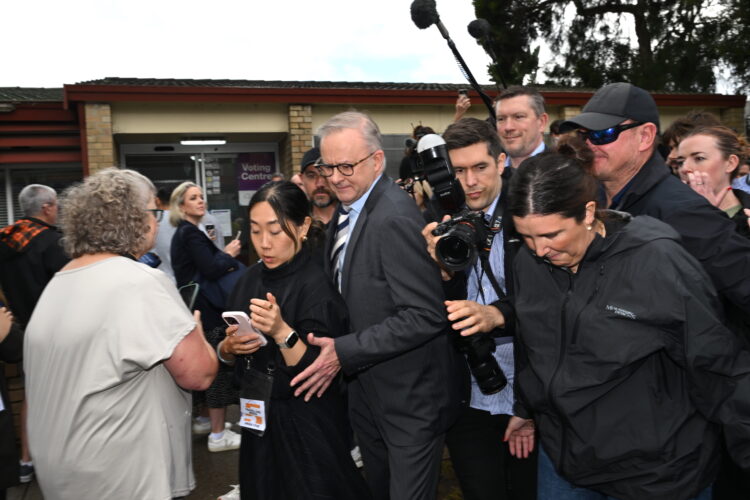The Anti-Poverty Centre has responded to Anthony Albanese’s cranky response to Guardian journalist Dan Jervis-Brady asking him about Jobseeker (which has been one of the missing elements of this campaign, along with the farce that is mutual obligations.)
The Antipoverty Centre is calling on the prime minister to at least be honest about the failure of his government to support people in poverty instead of insulting our intelligence. Welfare recipients do not accept the pathetic excuse that “fiscal parameters” are a reason to keep Centrelink payments below the poverty line.
Earlier today Albanese accused a Guardian journalist of verballing him, saying that he “deserves respect” and leads a “compassionate” government, when they asked what it would take for a Labor government to increase JobSeeker to the amount called for by advocates and if his advice to unemployed people is to “just get a job”.
He had the audacity to make these comments when announcing a trauma recovery centre for women leaving violent relationships, while he chooses to keep women living in poverty with inadequate Centrelink payments and the partner income test, which trap them in violent homes. The Sex Discrimination Commissioner has called for these policies to change because she knows services are just a band-aid if root causes are not addressed.
As Australia Institute chief economist Greg Jericho commented, “When political parties talk about ‘fiscal parameters’ in regards to help for those living in poverty, they are not being up front about all the costs to the budget that go to the richest and the most profitable.”
Quotes attributable to Antipoverty Centre spokesperson and JobSeeker recipient Jay Coonan
The prime minister hasn’t earned the respect of anyone who cares about people in poverty.
A lot of poor people believed Labor when they said “no one left behind”, and that broken promise has caused a lot of pain. Many of us are feeling worse off financially now than we did three years ago and the government has shown no signs that they care to address that.
Albanese refuses to acknowledge the obscene reality that it is government policy to maintain 4% unemployment, while at the same time forcing those of us who don’t have paid work, or don’t have enough of it, to survive hundreds of dollars a week below the poverty line. There is no compassion in that, or the endless gaslighting about how good we have it.
The reality is we’re not in a cost of living crisis, we’re in a greed crisis that has been enabled by policy choices made by this government and supported by the Coalition.
The government can afford to lift all Centrelink payments to ensure no one is in poverty, it just prefers not to. No one talks about the budget constraints when it comes to more weapons or tax handouts to the wealthy, only when it comes to helping those of us who need it most urgently.
We need all Centrelink payments above the Henderson poverty line urgently, and then the government must work with welfare recipients to develop a sophisticated poverty measure that is fit for purpose in the 21st century.
